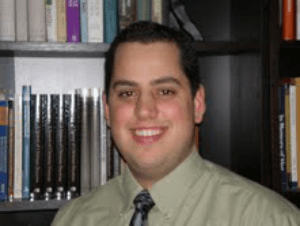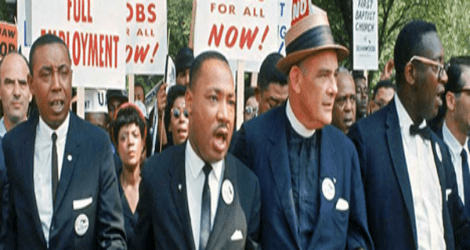#OWS and the Church Today
In our nation today, it is #OWS that calls our society back to a concern for social justice, for taking the side of the poor and oppressed and standing with them against the privileged, and who remind the church of its responsibility for faithful and active covenant relationship with God. Karl Barth, perhaps the greatest Reformed theologian since John Calvin, once wrote that “God may speak to [the church] through Russian Communism, a flute concerto, a blossoming shrub, or a dead dog. We do well to listen to [God] if [God] really does.”[10] Whether you prefer to think of #OWS as Russian Communism, a flute concerto, a blossoming shrub, or a dead dog, I believe that the Reformed tradition shoves us rudely toward the affirmation that #OWS is where God is speaking to the church in this time and place. This certainly does not mean that the church must now proclaim the gospel of #OWS. Indeed, that would be a very serious mistake. But #OWS reminds the church of something that it has forgotten, namely, that faithful and active shouldering of covenantal responsibility in relationship with God ineluctably involves love of neighbor by taking the side of the poor and oppressed and working in our society for justice.
One of Barth’s most significant students, Helmut Gollwitzer, helpfully casts all this in terms that fit well within the contemporary #OWS discussions of social and economic injustice when he writes:
The conversion to which the Christian community is called daily through God’s word also includes turning away from its bond in the dominant system of privileges and active engagement for more just social structures no longer determined by social privileges. Therefore the important primary question today is the question about the relation of Christian existence and capitalism. . . . Can one as a Christian affirm and defend the present social system together with its underlying economic order or must this system be intolerable for a Christian?[11]
It is precisely this question that #OWS puts to the church in the United States today. There is no room for neutrality on this point. As a truism often associated with Edmund Burke says, “All that is necessary for the triumph of evil is that good men do nothing.” The truth buried here is that when it comes to issues like those #OWS brings to our attention, remaining neutral offers de facto support to the status quo. As a theologian and Christian in the Reformed tradition, I cannot remain neutral.[12]
Notes
[1] Here is one way that Wikipedia describes the term: “the term is used by people all across the political spectrum to refer to the journalists and political operatives who see themselves as the arbiters of conventional wisdom.”
[2] John H. Leith, An Introduction to the Reformed Tradition: A Way of Being the Christian Community, revised edition (Atlanta, GA: John Knox Press, 1981), 80. Emphasis added.
[3] John Calvin, Institutes of the Christian Religion, 2 vols., Library of Christian Classics (Ford Lewis Battles; trans., John T. McNeill, ed.; Philadelphia, PA: Westminster Press, 1960), 2.7.12; 360.
[4] All scriptural quotations are taken from the NRSV.
[5] Or the marginalized, abused, tortured, etc. It is a testament to this world’s great evil that we require so many terms to adequately describe those ground beneath violent wheels of power.
[6] John W. Riggs, Baptism in the Reformed Tradition: An Historical and Practical Theology, Columbia Series in Reformed Theology (Louisville, KY: Westminster John Knox Press, 2002), 38.
[7] Auguste Lecerf, An Introduction to Reformed Dogmatics (André Schlemmer, trans.; Grand Rapids, MI: Baker Book House, 1981), 385.
[8] PC(USA), The Constitution of the Presbyterian Church (U.S.A.): Part 1, Book of Confessions (Louisville, KY: Office of the General Assembly, 1999), xix.
[9] The ruler believes that he has observed the second table of the Law (which concerns love of neighbor and forbids stealing, bearing false witness, etc.) just as fully as the first table (which concerns rejecting idolatry, the worship of other gods, etc.). Indeed, Jesus only explicitly mentions, and the ruler only explicitly affirms observing, commandments from the second table. That Jesus points to the ruler’s wealth in response to the affirmation that he observed love of neighbor suggests that precisely that wealth stands as a witness against the ruler, implicating him in failing to observe the Law’s second table. Perhaps the ruler went away sad not primarily because he realized that he could not join Jesus unless he gave away his wealth, but because he realized even more fundamentally that he had not in fact “kept all these [commandments] since my youth” (v 21).
[10] Karl Barth, Church Dogmatics, 4 volumes in 13 part-volumes (Geoffrey W. Bromiley and Thomas F. Torrance, trans. & ed.; Edinburgh: T&T Clark, 1956-75), 1.1, 55. For a technical theological discussion of how this works, cf. George Hunsinger, How to Read Karl Barth: The Shape of His Theology (New York: Oxford University Press, 1991), 234-80.
[11] Helmut Gollwitzer, “Why I Am A Christian Socialist.” <http://portland.indymedia.org/en/2003/04/62441.shtml>. December 2011.
[12] One ought interpret this discussion as a call for concrete actualization of the theological and ecclesial values promoted by the Accra Confession, promulgated by the World Alliance of Reformed Churches (now merged with the Reformed Ecumenical Council to form the World Communion of Reformed Churches), in the contemporary social climate of the United States. This confession urges Reformed Christians throughout the world to “reject current world economic order imposed by global neoliberal capitalism and any other economic system…which defy God’s covenant by excluding the poor, the vulnerable and the whole of creation from the fullness of life” (§19). The confession’s full text is available for download on the Presbyterian Church (USA)’s website, <http://www.pcusa.org/resource/accra-confession-covenant-justice-economy-and-eart/>. December 2011.
W. Travis McMaken is an Assistant Professor of Religion at Lindenwood University and a member of the Presbyterian Church (U.S.A.). He resides in St. Charles, Missouri, with his wife and two sons, and blogs at Der Evangelische Theologe (http://derevth.blogspot.com). Banner Photo by David Shankbone.







Unbound Social